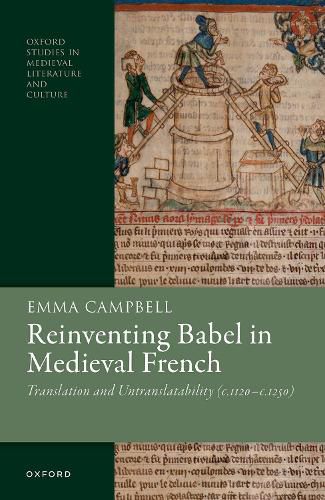Readings Newsletter
Become a Readings Member to make your shopping experience even easier.
Sign in or sign up for free!
You’re not far away from qualifying for FREE standard shipping within Australia
You’ve qualified for FREE standard shipping within Australia
The cart is loading…






How can untranslatability help us to think about the historical as well as the cultural and linguistic dimensions of translation? For the past two centuries, theoretical debates about translation have responded to the idea that translation overcomes linguistic and cultural incommensurability, while never inscribing full equivalence. More recently, untranslatability has been foregrounded in projects at the intersections between translation studies and other disciplines, notably philosophy and comparative literature. The critical turn to untranslatability re-emphasizes the importance of translation's negotiation with foreignness or difference and prompts further reflection on how that might be understood historically, philosophically, and ethically. If translation never replicates a source exactly, what does it mean to communicate some elements and not others? What or who determines what is translatable, or what can or cannot be recontextualized? What linguistic, political, cultural, or historical factors condition such determinations? Central to these questions is the way translation negotiates with, and inscribes asymmetries among, languages and cultures, operations that are inevitably ethical and political as well as linguistic. This book explores how approaching questions of translatability and untranslatability through premodern texts and languages can inform broader interdisciplinary conversations about translation as a concept and a practice. Working with case studies drawn from the francophone cultures of Flanders, England, and northern France, it explores how medieval texts challenge modern definitions of language, text, and translation and, in so doing, how such texts can open sites of variance and non-identity within what later became the hegemonic global languages we know today.
$9.00 standard shipping within Australia
FREE standard shipping within Australia for orders over $100.00
Express & International shipping calculated at checkout
How can untranslatability help us to think about the historical as well as the cultural and linguistic dimensions of translation? For the past two centuries, theoretical debates about translation have responded to the idea that translation overcomes linguistic and cultural incommensurability, while never inscribing full equivalence. More recently, untranslatability has been foregrounded in projects at the intersections between translation studies and other disciplines, notably philosophy and comparative literature. The critical turn to untranslatability re-emphasizes the importance of translation's negotiation with foreignness or difference and prompts further reflection on how that might be understood historically, philosophically, and ethically. If translation never replicates a source exactly, what does it mean to communicate some elements and not others? What or who determines what is translatable, or what can or cannot be recontextualized? What linguistic, political, cultural, or historical factors condition such determinations? Central to these questions is the way translation negotiates with, and inscribes asymmetries among, languages and cultures, operations that are inevitably ethical and political as well as linguistic. This book explores how approaching questions of translatability and untranslatability through premodern texts and languages can inform broader interdisciplinary conversations about translation as a concept and a practice. Working with case studies drawn from the francophone cultures of Flanders, England, and northern France, it explores how medieval texts challenge modern definitions of language, text, and translation and, in so doing, how such texts can open sites of variance and non-identity within what later became the hegemonic global languages we know today.